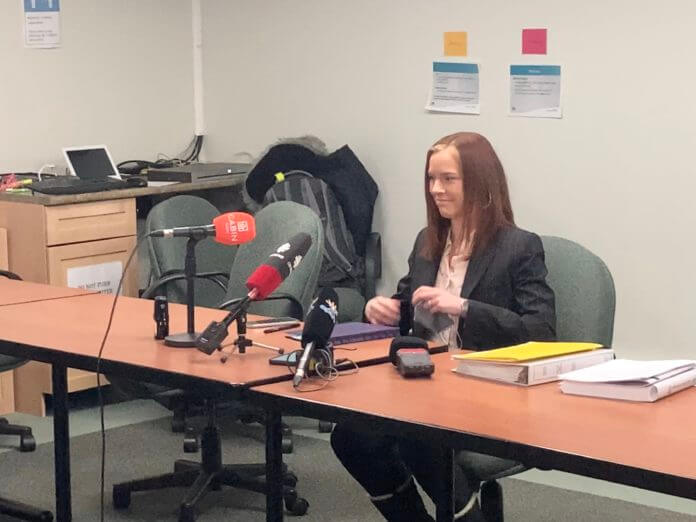The GNWT released its 2021 budget, with some staffers calling it the last before what they call government renewal begins.
The territorial government described their own fiscal plan as unsustainable, with Deputy Minister of Finance Sandy Kalgutkar saying the territorial government has engaged in unsustainable practices in the past, always cutting to spend more, and he said the GWNT is hoping to get out of the “cycle of contraction and extraction.”
Government renewal is seen as the solution to those sustainability issues.
The process, which Finance Minister Caroline Wawzonek discussed in the Legislative Assembly in November, will reverse budgets that have “impaired the long-term sustainability of the GNWT.”
It will move away from incremental budgeting, where’s typically the previous year’s spending is used as the benchmark for the following fiscal year. Instead, the finance department will assess the value of programs and adjust spending.
Wawzonek says unequivocally, the renewal process is not an exercise in cuts.
“It’s really, what can we do to increase the evaluation of our programs and services, increasing capacity in terms of our evaluators, and using their skills to support departments to go through this in a really organized and systematic way.”
Kalgutkar says work on the process would have begun sooner, but efforts were hampered by the COVID-19 pandemic. He adds a lot of time will be required.
Spending as a whole is higher than the original 2020-21 budget but lower than the revised 2021 budget after the impact of COVID-19 was considered, at $2.12 billion compared to $2.21 billion in the revised budget. This budget includes a $68.6 million surplus, which will go towards capital projects.
The 2021 budget includes small increases to the budgets of most government departments, with everyone apart from Executive and Indigenous Affairs and Department of Lands receiving a funding boost.
Revenues as a whole are up because of increased funding from the federal government. The government’s own-source revenues are down from $346 million to $322 million, in part fuelled by zero money in mining royalties included in this budget this year.
That’s because royalties from mining companies are a proportion of profits from mines, and most mining companies weren’t selling or lost money because of higher costs this year.
Despite this, taxes aren’t set to increase in 2021. Small business tax was cut from four to two percent.
Infrastructure spending was set to be a priority to kick start the NWT’s economy, with $451 million in capital estimates approved by the Legislative Assembly. Most of that money will be paid for with short-term borrowing with the rest coming from the surplus.
But Wawzonek said she was cautiously optimistic that growth in own-source revenue could mean future budgets will look similar.
“If we can take the opportunities that are here, to make strategic investments to have and if we’re using our capital budget well, we may well start to see things improve to the point that this is not the last time that we can have a budget like this, namely a stability budget,” said Wawzonek.
“I think if we are being careful and using the sort of approach that we are,” she added. “I think we can still be in the same position next year, which isn’t necessarily seeing an improvement, but at least that stability can be maintained.”





